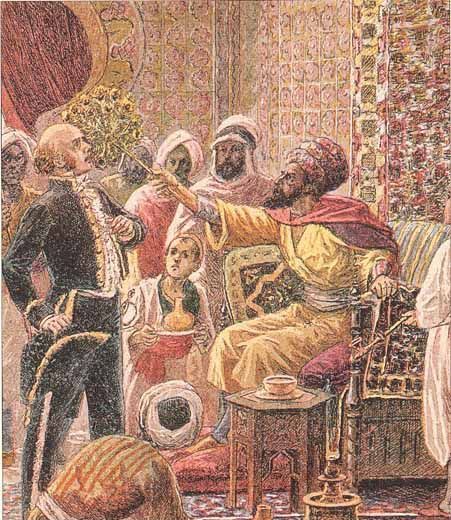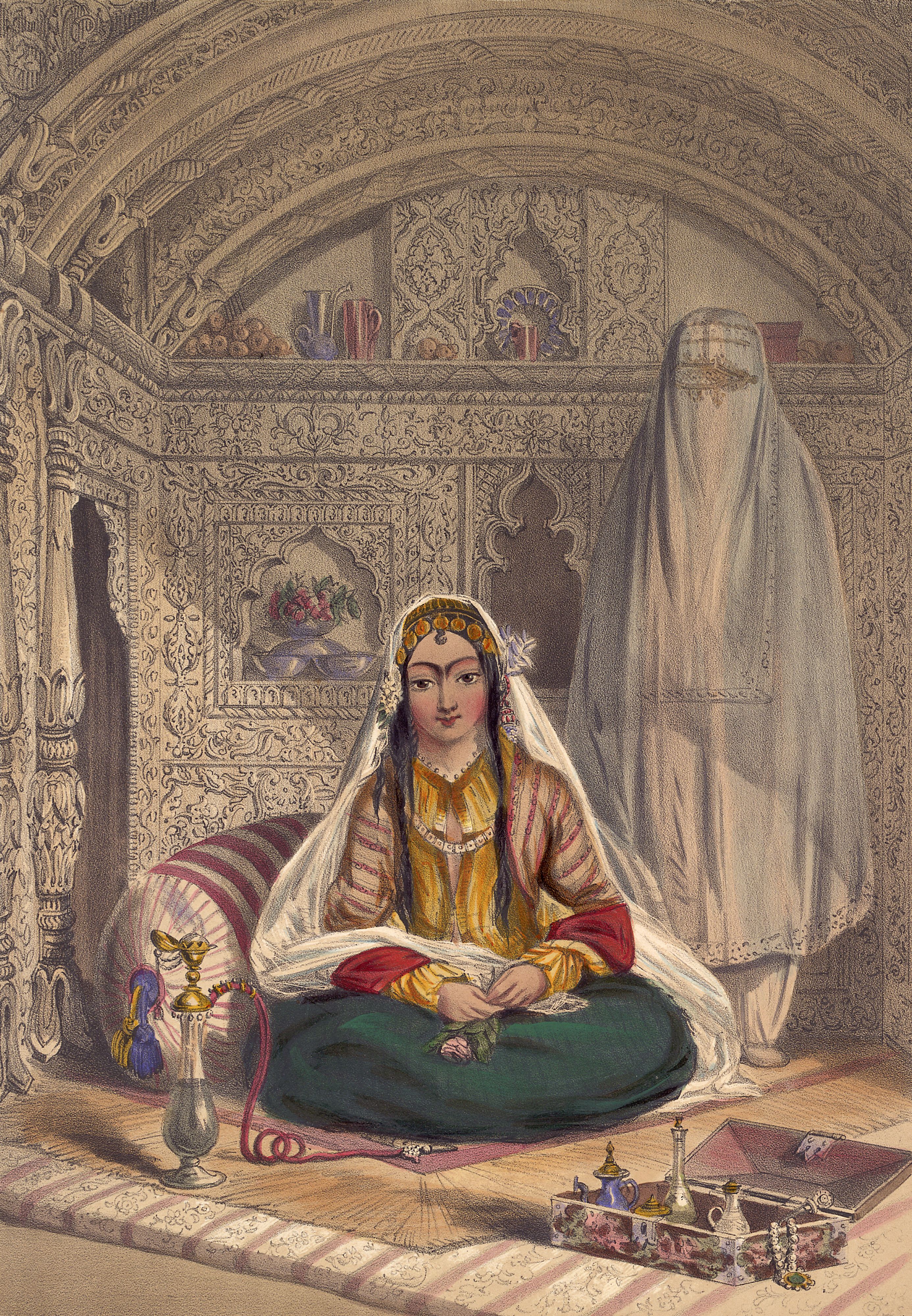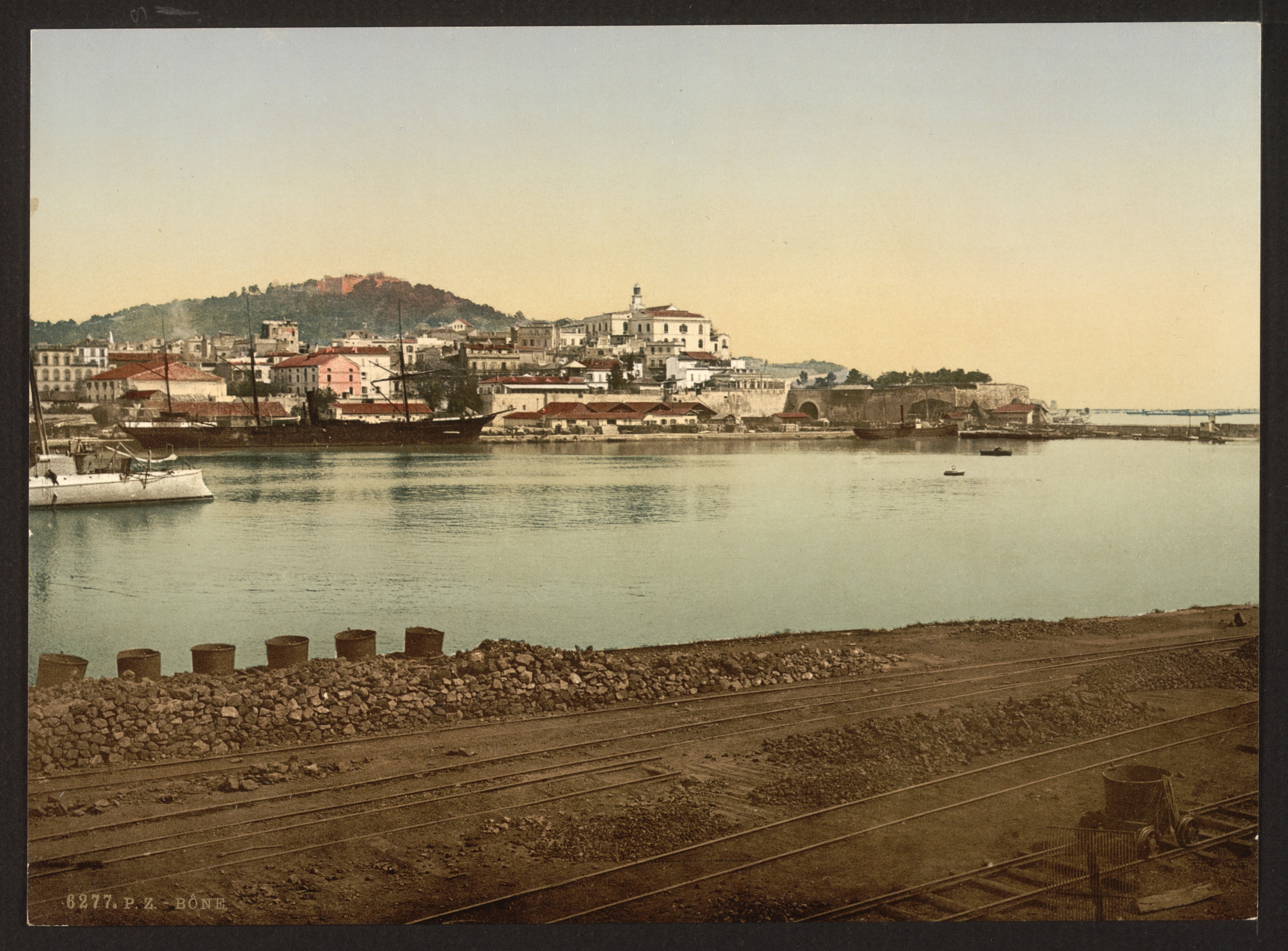|
Dey Hussein
Hussein Dey (real name Hüseyin bin Hüseyin; 1765 – 1838; ar, حسين داي) was the last Dey of the Deylik of Algiers. Early life He was born either in İzmir or Urla in the Ottoman Empire. He went to Istanbul and joined the Canoneers (Topchys in Turkish), and quickly rose to the rank of Oda-Bachy, but thanks to his character and rivalries, he was forced to flee the Ottoman Empire. He fled to the Deylik of Algiers, a country which was De facto independent from the Ottoman Empire, similar to the other countries of the Barbary Coast. Algiers was well known for accepting fugitives of different countries. In Algiers, he joined the Odjak of Algiers and became a Janissary. In 1815 he was appointed Khodjet al-khil, a minister tasked with raising and commanding the cavalry of the Dey and raising taxes. He commanded the cavalry as a quick relief force during the bombardment of Algiers in 1816. In 1818 following the death of the previous Dey, the Divan of Algiers elected Huss ... [...More Info...] [...Related Items...] OR: [Wikipedia] [Google] [Baidu] |
Ali Khodja
Ali V Ben Ahmed, nicknamed Ali Khodja, Ali-Meguer, or Ali Loco (the mad) (Arabic: علي ابن أحمد خوجة) was a Kouloughlis, Kouloughli of partial Georgia (country), Georgian (Mingrelians, Mengrelian) and Native Algerian origins born in modern day Algeria. He was the dey of Algiers, dey of the Deylik of Algiers from September 1817, just after the assassination of his predecessor Omar Agha the 8th. He remained so until his death in February 1818. His sobriquet ''Ali-Meguer'' may indicate his Mingrelians, Mingrelian background. Origins He was a Kouloughlis, Kouloughli. His mother was an Algerian Kabyle people, Kabyle, most likely from the Zwawa tribal confederation. He was Mingrelians, Mingrelian from his father's side, although it is unknown if his father was fully, or only partially mingrelian. Early life He was complicit in the assassination of Ahmed bin Ali Khodja in 1808, and the assassination of Omar agha (1817). He served in various important positions before be ... [...More Info...] [...Related Items...] OR: [Wikipedia] [Google] [Baidu] |
Divan Of Algiers
A divan or diwan ( fa, دیوان, ''dīvān''; from Sumerian ''dub'', clay tablet) was a high government ministry in various Islamic states, or its chief official (see ''dewan''). Etymology The word, recorded in English since 1586, meaning "Oriental council of a state", comes from Turkish ''divan'', from Arabic ''diwan''. It is first attested in Middle Persian spelled as ''dpywʾn'' and ''dywʾn'', itself hearkening back, via Old Persian, Elamite and Akkadian, ultimately to Sumerian ''dub'', clay tablet. The word was borrowed into Armenian as well as ''divan''; on linguistic grounds this is placed after the 3rd century, which helps establish the original Middle Persian (and eventually New Persian) form was ''dīvān'', not ''dēvān'', despite later legends that traced the origin of the word to the latter form. The variant pronunciation ''dēvān'' however did exist, and is the form surviving to this day in Tajiki Persian. In Arabic, the term was first used for the army ... [...More Info...] [...Related Items...] OR: [Wikipedia] [Google] [Baidu] |
Naples
Naples (; it, Napoli ; nap, Napule ), from grc, Νεάπολις, Neápolis, lit=new city. is the regional capital of Campania and the third-largest city of Italy, after Rome and Milan, with a population of 909,048 within the city's administrative limits as of 2022. Its province-level municipality is the third-most populous metropolitan city in Italy with a population of 3,115,320 residents, and its metropolitan area stretches beyond the boundaries of the city wall for approximately 20 miles. Founded by Greeks in the first millennium BC, Naples is one of the oldest continuously inhabited urban areas in the world. In the eighth century BC, a colony known as Parthenope ( grc, Παρθενόπη) was established on the Pizzofalcone hill. In the sixth century BC, it was refounded as Neápolis. The city was an important part of Magna Graecia, played a major role in the merging of Greek and Roman society, and was a significant cultural centre under the Romans. Naples served a ... [...More Info...] [...Related Items...] OR: [Wikipedia] [Google] [Baidu] |
Harem
Harem (Persian: حرمسرا ''haramsarā'', ar, حَرِيمٌ ''ḥarīm'', "a sacred inviolable place; harem; female members of the family") refers to domestic spaces that are reserved for the women of the house in a Muslim family. A harem may house a man's wife or wives, their pre-pubescent male children, unmarried daughters, female domestic servants, and other unmarried female relatives. In harems of the past, slave concubines were also housed in the harem. In former times some harems were guarded by eunuchs who were allowed inside. The structure of the harem and the extent of monogamy or polygamy has varied depending on the family's personalities, socio-economic status, and local customs. Similar institutions have been common in other Mediterranean and Middle Eastern civilizations, especially among royal and upper-class families, and the term is sometimes used in other contexts. In traditional Persian residential architecture the women's quarters were known as ''andar ... [...More Info...] [...Related Items...] OR: [Wikipedia] [Google] [Baidu] |
French Algeria
French Algeria (french: Alger to 1839, then afterwards; unofficially , ar, الجزائر المستعمرة), also known as Colonial Algeria, was the period of French colonisation of Algeria. French rule in the region began in 1830 with the invasion of Algiers and lasted until the end of the Algerian War of Independence in 1962. While the administration of Algeria changed significantly over the 132 years of French rule, the Mediterranean coastal region of Algeria, housing the vast majority of its population, was an integral part of France from 1848 until its independence. As one of France's longest-held overseas territories, Algeria became a destination for hundreds of thousands of European immigrants known as ''colons'', and later as . However, the indigenous Muslim population remained the majority of the territory's population throughout its history. Many estimates indicates that the native Algerian population fell by one-third in the years between the French invasion a ... [...More Info...] [...Related Items...] OR: [Wikipedia] [Google] [Baidu] |
Sidi Fredj
Sidi Fredj, known under French rule as Sidi Ferruch, is a coastal town in Algiers Province, Algeria. It is located within the territory of the municipality of Staouéli, on a presque-isle on the Mediterranean Sea. It is the site of the ancient city and bishopric Obori, which remains a Catholic titular see. History Obori was important enough in the Roman province of Mauretania Caesariensis to become one of the many suffragans of its capital Caesarea Mauretaniae's Metropolitan Archbishopric, but faded like most sees in Roman Africa. Sidi Fredj was the landing spot where the French established their beachhead for the Invasion of Algiers in 1830. A number of ships of the French Navy were subsequently named ''Sidi Ferruch'', the colonial name of the town under French rule, in honour of the event. Titular see The diocese was nominally restored in 1933 as the titular bishopric of Obori (Latin) / Obori (Curiate Italian) / Oboritan(us) (Latin adjective). It has had the followin ... [...More Info...] [...Related Items...] OR: [Wikipedia] [Google] [Baidu] |
Fly Whisk
__NOTOC__ A fly-whisk (or fly-swish) is a tool that is used to swat flies. A similar gadget is used as a hand fan in hot tropical climates, sometimes as part of regalia, and is called a ''chowrie'', ''chāmara'', or ''prakirnaka'' in South Asia and Tibet. In Indonesian art, a fly-whisk is one of the items that is associated with Shiva. A fly-whisk is frequently seen as an attribute of Hindu, Jain, Daoist and Buddhist deities. The fly-whisk is evident in some configurations of the Ashtamangala, employed in some traditions of murti puja, particularly Gaudiya Vaishnavism. It is also used as an accessory in the ritual aspects of folk performance traditions, especially folk-theater forms like Pala Gaan, where it can double as a prop. Fly-whisks are in use in parts of the contemporary Middle East, such as Egypt, by some classes of society, ''e.g.'', outdoor merchants and shop keepers, especially in summer when flies become bothersome. Those have a wooden handle and plant fibers attache ... [...More Info...] [...Related Items...] OR: [Wikipedia] [Google] [Baidu] |
El Kala
El Kala ( ar, القالة, Latin ''Thinisa in Numidia'') is a seaport of Algeria, in El Tarf Province, 56 miles (90 km) by rail east of Annaba and 10 miles (16 km) west of the Tunisian frontier. It is the centre of the Algerian and Tunisian coral fisheries and has an extensive industry in the curing of sardines. The harbor is small and exposed to the northeast and west winds. El Kala attracts tourists from within and outside the country, especially during the summer. It is home to an exceptional ecosystem and was declared a biosphere reserve by UNESCO in 1990. History Thinisa in Numidia was an ancient city in the Roman province of Numidia. It was important enough to become a bishopric. The old fortified town was built on a rocky peninsula about 400 metres long, connected with the mainland by a sand bank. French and Italian coral fishing companies were interested in the area from as early as 1553. A trade bastion called "Bastion de France" by its Corsican founders was ... [...More Info...] [...Related Items...] OR: [Wikipedia] [Google] [Baidu] |
Annaba
Annaba ( ar, عنّابة, "Place of the Jujubes"; ber, Aânavaen), formerly known as Bon, Bona and Bône, is a seaport city in the northeastern corner of Algeria, close to the border with Tunisia. Annaba is near the small Seybouse River and is in the Annaba Province. With a population of about 464,740 (2019) and 1,000,000 for the metropole, Annaba is the third-largest city and the leading industrial center in Algeria. Annaba is a coastal city that underwent significant growth during the 20th century. Annaba has a metropolitan area with a higher population density than the other metropolitan areas of the Algerian coastline, such as Oran and Algiers. Much of eastern and southern Algeria uses the services, equipment and infrastructure of Annaba. Economically, it is the centre for various economic activities, such as industry, transportation, finance, and tourism. Names Present-day Annaba grew up on the site of Aphrodisium, the seaport of the Roman city . (The modern city ... [...More Info...] [...Related Items...] OR: [Wikipedia] [Google] [Baidu] |
Pierre Deval (diplomat)
Pierre Deval (1758–1829) was French Consul-General in Algeria from 1814 to 1827. He is known for his diplomatic mission to the Regency of Algiers, and the diplomatic slights he received while there, which gave a pretext to the French invasion of Algiers in 1830. Deval was a member of a family which provided dragomans to the French diplomatic services to the Ottoman Empire since 1716. During the Napoleonic Wars, the Regency of Algiers had greatly benefited from trade in the Mediterranean, and of the massive imports of food by France, largely bought on credit by France. Deval visited the Dey of Algiers 29 April 1827. Hussein Dey, Algeria's Ottoman ruler, demanded that the French pay a 28-year-old debt, contracted in 1799 by purchasing supplies to feed the soldiers of the Napoleonic Campaign in Egypt. In the "Bacri-Busnach affair" in 1797 two Jewish traders of Algiers, Bacri and Busnach, had sold for 14 millions of wheat to the French Republic, which were never paid back. Hussei ... [...More Info...] [...Related Items...] OR: [Wikipedia] [Google] [Baidu] |
Bakri-Busnach Affair
{{No footnotes, date=December 2020 The Bakri-Busnach affair (French: L'affaire Bakri-Busnach) is the name of a commercial–political conflict between France and Algeria in the early 19th century; it centered on France's obligations to a commercial company owned by the Algerian Jewish families of Bakri and Bujanah. The affair is considered one of the causes of the French invasion of Algeria in 1830. During the 17th century, Jewish immigrants from Livorno, Italy, arrived in northern Algeria. These immigrants, who were the descendants of deportees from Spain, settled in North Africa as traders, in search of economic opportunities. Soon they became a significant factor in the international trade of Algerian cities. They provided important financial and commercial services to the Dey (the local ruler of the Ottoman Empire), and some of them were appointed over the years to serve as the "early" mediator between the Algerian Jewish community and the government. Two of the senior famili ... [...More Info...] [...Related Items...] OR: [Wikipedia] [Google] [Baidu] |
Charles X Of France
Charles X (born Charles Philippe, Count of Artois; 9 October 1757 – 6 November 1836) was King of France from 16 September 1824 until 2 August 1830. An uncle of the uncrowned Louis XVII and younger brother to reigning kings Louis XVI and Louis XVIII, he supported the latter in exile. After the Bourbon Restoration in 1814, Charles (as heir-presumptive) became the leader of the ultra-royalists, a radical monarchist faction within the French court that affirmed rule by divine right and opposed the concessions towards liberals and guarantees of civil liberties granted by the Charter of 1814. Charles gained influence within the French court after the assassination of his son Charles Ferdinand, Duke of Berry, in 1820 and succeeded his brother Louis XVIII in 1824.Munro Price, ''The Perilous Crown: France between Revolutions'', Macmillan, pp. 185–187. His reign of almost six years proved to be deeply unpopular amongst the liberals in France from the moment of his coronation in ... [...More Info...] [...Related Items...] OR: [Wikipedia] [Google] [Baidu] |




.jpg)


